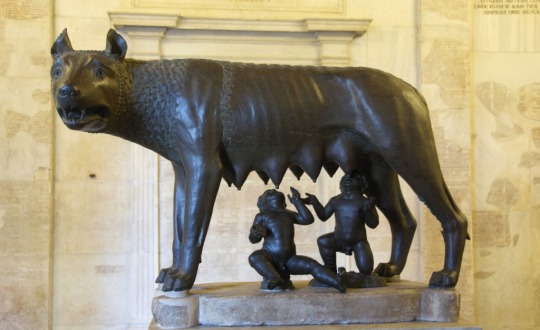#aeneas wilder
Photo










Arte Sella, the contemporary mountain.
An outdoor museum in Northern Italy, Val di Sella, Trentino.
Visited July 2019
#land art#contemporary#arte sella#rainer gross#aeneas wilder#bob verschueren#francois lelong#jaehyo lee#cédric le borgne#urs twellman#canon eos m50#ef-m 15-45mm
12 notes
·
View notes
Text
i think it's really nice that ursula le guin was careful to specifically mention in lavinia that vergil isn't so much a real historical person as a character we've all constructed in our collective imagination. because now she's also a character we've all constructed in our collective imaginations.
#that reference the vergil makes-- ostensibly as he lies dying in brundisium in 19 bce-- to meeting dante in the wood kills me#he's dante's vergil and wilder's vergil and broch's vergil and le guin's vergil and mine#which i suppose means he's not his own. as lavinia is not her own. that's what it means to live on in memory.#its just me and the ursula k le guin in my head and the vergil in her head in my head and the aeneas in his head in her head in my head...#mine#aeneidblogging
55 notes
·
View notes
Text


AENEAS WILDER, Untitled 169, 2013
Arte Sella, Trentino-Alto Adige
#arte#arte contemporanea#contemporary#contemporary art#art#digital media#mine.cd#mine.cd3#photo#photography#nature#installation#arte sella#trentino#trentino alto adige#land art#environmental art#arte ambientale
129 notes
·
View notes
Text
Ancient Woman Thunderdome 2023
Round 4 (QUARTERFINAL) Match 2: Atalanta vs. Camilla!
The rules: Vote based on who would win in a fight, NOT who you like more. Consider factors such as physical prowess, intelligence or cunning, and magical ability.
If the character has multiple non-godly forms, consider the one you believe to be more powerful. If the character is a goddess for a portion of their life, please only consider their mortal or non-godly form.
The fighters:
Fighter: Atalanta
Source(s): Apollodorus's Library, Ovid's Metamorphoses, various other mythological sources
Bio: Atalanta was a huntress associated with Artemis. She was a virgin who lived in the wilderness, and at one point killed two centaurs who tried to rape her. She may or may not have sailed and fought with the Argonauts, and defeated Peleus in a wrestling match at Pelias's funeral games. When Artemis sent a boar to Calydon to punish the king for not sacrificing to her, Atalanta joined the hunt and drew first blood. Later, her father found her and tried to get her to marry. Atalanta, knowing she was faster than just about anyone, said she would marry anyone who could beat her in a footrace, but if the suitor lost, he would be killed. Many men were killed, until Hippomenes prayed to Aphrodite and received three golden apples, which he threw to the side during the race to distract her. She did marry him, and, after she bore his child, they were both turned into lions in retaliation for having sex in a sacred area.
Fighter: Camilla
Source(s): Virgil's Aeneid
Bio: Camilla was promised as an infant to Diana in exchange for her safety in a dangerous river crossing. She grew up in the woods as a huntress. She fought against Aeneas and his Trojans, and was killed in the battle. Virgil says that she was such a fast runner that she could run across a field ready to harvest without disturbing the crops, or across the sea without getting her feet wet.
18 notes
·
View notes
Note
Unheard of Roman mythology for fff?
It is Saturday morning because I went to bed before seeing this, but I don't think it's necessarily fair to make you wait a week. So! Today You Learned about how Romulus & Remus are not the only legendary founders of Rome.

Alright, so when you think about who founded Rome, chances are that you're thinking of Aeneas (a noble of Troy and the son of Venus) or Romulus & Remus (sons of Mars). Those are the established mythical figures associated with Rome's beginnings.
The story of Romulus & Remus is pretty popular, because of Plutarch and Livy, two big sources on Roman history and culture. Two boys, the demigod sons of Mars (and descendants of Aeneas, the Trojan prince, I think?), are abandoned in the wilderness and fed by a mother she-wolf. When they grow up, they found a city, but feud, and Romulus kills Remus and the city's named after him.
Except that's not the only story that went around in ancient Rome. Romulus and Aeneas are definitely popular contenders, but not everyone agreed on who they were. Romulus was sometimes posited to be the son of Aeneas or even the son of Odysseus. Some stories had Rome founded by Aeneas with Odysseus (why the two would work together after being on opposite sides of the Trojan War, I don't know). There are in fact a bunch of folk tales about Odysseus settling places in Italy, in part because that was where some believed Circe lived there, and Odysseus stayed with her for a while.
It's also worth noting that the Latin word for 'she-wolf' is also a euphemism for a prostitute, and legends involving either of those interpretation exist.
Fact is that there isn't a historical record about how Rome was founded that's survived, even in the days of ancient Rome, so mythical pasts were invented, often tying the story to the Trojan War. This was a popular thing to do for centuries! There are writers that tried to make it so that Britain was settled by Aeneas's descendants, or that the Norse gods are actually heroes of the Trojan War under different names.
So yeah! When someone asks you who founded Rome, Kiwi Hellenist suggests that you can give any or all of these answers:
Aeneas
Evander
Latinus
Romulus
Romulus & Remus
Romulus (son of Aeneas, rather than son of Mars and Rhea Silvia)
Romulus (grandson of Telemachus and Circe)
Aeneas and Odysseus
Romus (son of Aeneas)
Romus (grandson of Aeneas)
Romus (son of Odysseus and Circe)
Romus, Romulus, and Telegonus (sons of Latinus)
Romanus (son of Odysseus and Circe)
Latinus (son of Odysseus)
Latinus (son of Telemachus and Circe)
Latinus (a Trojan)
Greeks returning from Troy and stranded in Latium
Now you know!
#Fun Fact Friday#but on Saturday#Today You Learned#Roman mythology#Kiwi Hellenist#Romulus and Remus#ancient Rome#Rome
5 notes
·
View notes
Text
Father:
Vidar is one of the many Aesir gods venerated by the Vikings, but little knowledge has come down to us about him. However, although he is obscure today, he seems to have been an important deity in the Norse pantheon.
One of the many sons of Odin the Allfather, Vidar was known by several kennings. He was Vidar the silent, the possessor of the iron shoe, the enemy and slayer of Fenrir, the avenger, and he who inhabits the homestead of his father.
These kennings offer an interesting glimpse of the character and importance of Vidar. Today’s we will dig into exactly what we know about this Viking god.
Vidar’s Lineage
Vidar was one of the many sons of Odin, very few of which the chief of the Aesir gods produced with his wife Frigg.
Balder the beautiful, destined to be slain by Loki and therefore put the events that will result in Ragnarok into motion, is the only son that we know Odin had with Frigg.
Thor is the son of Odin with the goddess Jord, who is also considered the embodiment of the earth itself.
Jotunheim Norse Mythology
In Norse mythology, the dragon Nidhogg is one of the many creatures that dwell within…
Tyr God of War and Justice ?
The mighty god Tyr is among the most important of the Vikings deities ( see…
Vanaheim : Norse mythology
According to the Poetic Edda, Vanaheim is one of the nine realms within the Norse…
Vidar is the son of Odin with the giantess Gridr. Very little is known about her, but her name means vehemence of violence.
She also features in the Prose Edda where she helps Thor on his journey to the land of the giant Geirrodr. She tells Thor about Geirrodr to help prepare him for the encounter and she also gives him her belt of strength Megingjord, iron gloves Jarngreipr, and her staff Gridarvol. These later became attributes of Thor.
Vengeance Vidar’s name means “widely ruling”, but this does not seem to be closely linked with the powers with which he was associated.
He is described as a warrior god and an excellent fighter. It is said that only Thor had greater strength than Vidar.
But unlike Thor, who seems to have been quite boastful, Vidar is known as the silent god.
This is thought to reflect the connection between Vidar and vengeance. It may simply reflect the fact that vengeance is a quitter kind of violence, or it may specifically reflect rituals associated with revenge combat. It is thought that rituals before this type of fight may have involved remaining silent, perhaps as a form of cleansing.
The Vikings believed that a man offended had the right to challenge another man to a duel, called holmgang. In theory, you could challenge anyone, regardless of social status, and it would bring great shame to refuse.
When making offerings to Vidar, the Vikings suggested burying a weapon in cold water or ice. This may again associate with vengeance, and the idea of it being a cold form of violence.
As well as these icy places, Vidar was associated with wilderness. His hall is described as a place where brushwood grows and the grass is high. He is also described in one source as being happiest in nature.
But Vidar was also known as the god of the thick shoes. It is said that he was constantly adding to his shoes with pieces of leather. Shoemakers were always encouraged to dedicate off cuts of leather left over when making their shoes to Vidar.
But the association between Vidar and shoes has little to do with the art of shoemaking.
Ragnarok
Vidar’s association with shoes and with vengeance primarily stems from the role it is prophesized that he will play in the Ragnarok apocalypse.
According to the prophecy, many of the gods will die in the great battle that ensues between the forces of Loki and the giants and the forces of Odin and the Aesir.
Odin himself is predicted to be killed by the mighty wolf Fenrir, a son of Loki. The gods so feared Fenrir that they tricked him so that they could chain him up on a deserted island where he could do no harm. They also wedged a sword in his mouth, locking it open.
The events leading up to Ragnarok will allow the great and powerful wolf to break his shackles. He will then run through the nine worlds of the Norse cosmos, devouring everything before him in his huge open mouth.
Finally, Fenrir will devour Odin himself.
But Vidar is destined to avenge the death of Odin. His thick shoes, which are probably also enchanted, will allow him to stamp down on the lower jaw of Fenrir. Continuing to hold Fenrir’s mouth open with his mighty strength, he will drive his sword down Fenrir’s throat and into his heart, killing him.
Rebuilding We have already seen the sources of most of Vidar’s kennings.
He is Vidar the silent because of his association with revenge, he possesses iron shoes that will allow him to battle Fenrir, which is also why he is called the enemy and slayer of Fenrir. He is also the avenger because he avenges the death of Odin. But why is Vidar also described as occupying the homestead of his father?
This may relate to the events that are prophesized to happen after Ragnarok.
According to the Ragnarok myth, Sutr, the fire giant, will set the world of fire with his burning sword, and that air will be poisoned by the venom of Jormungandr, who will slay and be slain by Thor. After this, the world will sink into the water.
Many accounts end there, with the end of all things.
However, some accounts suggest that the world will re-emerge from the water, and that some of the gods will survive to rebuild.
Among the surviving gods are said to be Vidar, and also Vali, another son of Odin, this time with the giantess Rindr.
It is said that they will meet in Ithavoll, a field near Asgard that survives the destruction, and there they will forge a new world, starting with shrines and temples.
So, perhaps this kenning for Vidar suggests that he will take the place of his father as the leader of the Aesir gods, therefore occupying his homestead.
Importance
While Vidar was clearly nowhere near as popular as Odin and Thor, as we do not see the same surviving dedications to him, he was clearly an important deity for the Vikings.
He is described in the Skaldskparmal, which describes the Aesir visiting Aegir to feast, as among the twelve presiding male deities at the banquet. He is also briefly mentioned as being present at the banquet described in the Lokesena, where Loki complains that he has not been invited to the feast, and then goes on to insult all of the Aesir gods.
When Odin gives in and says that Loki should stay, he tells Vidar to pour the giant a drink, which Vidar does.
Beyond mythology, Vidar may also appear in some surviving artworks.
The Gosforth cross surviving from northern England and the Kirk Andreas Cross surviving from the Isle and Man, both of which date from around 900, appear to show Vidar standing in the mouth of Fenrir, sword raised to slay him.
It is argued that these may actually be images of Christ slaying a wolf, but even if this is the case, then the story is probably inspired by the story of Vidar.
At least two Scandinavian places are named for Vidar. Virsu, from Vidarshof, which means temple of Vidar, and Viskjol, from Vidarsskjalf, which means pinnacle of Vidar. All of this suggests that Vidar had some importance among the Vikings. This is further reinforced by the 13th-century Icelandic chronicler Snorri Sturluson, who compares Vidar to Aeneas, the Trojan hero that survived the Trojan war and went on to found Rome.
10 notes
·
View notes
Text
Which Goddess are you? [Greek Edition]

Aphrodite
Goddess of love, beauty, and sexuality
Roman Name: Venus
Symbols: Myrtles, roses, doves, sparrows, and swans
Parents: Uranus or Zeus and Dione
Consorts: Hephaestus, Ares, Poseidon, Hermes, Dionysus, Adonis, and Anchises
Children: Eros, Phobos, Deimos, Harmonia, Pothos, Anteros, Himeros, Hermaphroditos, Rhode, Eryx, Peitho, Eunomia, The Graces, Priapus, Aeneas and Tyche (possibly)

Artemis
Goddess of the Hunt, the wilderness, wild animals, the moon, and chastity
Roman Name: Diana
Symbols: Bows and arrows, stags, hunting dogs, the moon
Parents: Zeus and Leto
Siblings: Ares, Athena, Apollo (twin brother), Aphrodite, Dionysus, Hebe, Hermes, Heracles, Helen of Troy, Hephaestus, Perseus, Minos, the Muses, the Graces

Iris
Goddess of the rainbow and messenger of the Gods
Roman Name: Arcus
Symbols: Rainbow, caduceus, pitcher
Parents: Thaumas and Electra
Siblings: Arke, Aello, Celaeno, and Ocypete
Consort: Zephyrus
Children: Pothos
Tagging: @strykingback, @flxwerofhell / @crystalmelodies, @spiritualsymbiosis, @gearlessjunkdogjoe, @lachrymosestorm & anyone else who feels up for the quiz!
#{Memes - Dash Games}#| ic - Violent Violet - She Makes Angels Scream and Devils Cry |#| ic - Maxie - Artemis's Arrow |#| ic - Hope - She who Survives |#now i bring all this shit over here#XD
2 notes
·
View notes
Photo

GUEST CARD
— ✹ FULL NAME ; artemis, isora, agroteia, locheia, potnia theron
— ✹ TITLE ; goddess of the hunt, the wilderness, wild animals, the Moon & holy chastity
— ✹ BIRTHPLACE ; on a barren island, delos of the shale & wolves, floating among mist
— ✹ LAND / KINGDOM ; olympus, the sprawling jungles reaching inland, the forests of the heights, the oceans of grassland & steppe in the north
— ✹ AGE ; immortal
AFFILIATIONS
— ✹ PARENTS ; zeus & leto
— ✹ SIBLINGS ; apollo as their twin & athena, ares, hermes, eris, helen as half-siblings
— ✹ LOVER(S) ; orion, tbd.
— ✹ PROTEGE ; aeneas, tbd.
INSIGHT
— ✹ VICES ; animosity, derision, presumption, vindictiviness, zealotry
— ✹ VIRTUES ; fortitude, fidelity, devotion, justice-seeking, vibrancy
— ✹ MORAL ALIGNMENT ; chaotic good
— ✹ PERSONALITY TYPE ; tbd.
— ✹ MOST FORTUNATE MEMORY ; apollo’s birth, a nebulous flicker, more sensation than thought, the way you drew their soul out into the world as if on a silver thether. orion’s hand in yours, his skin soft as vellum—nothing of the carnivore there, no huntsman in body, only in mind. polyphonte tipping their throat backwards to howl at the stars. siproites, grinning half-frenzied at their transformation, at the gift they wanted for so long—their delight splinters the darkness into kernels of light. you do not have one fortunate memory, you have an epoch of them ; your life is a monument to wildness, as it strikes you in joy, as it strikes you in grief.
— ✹ AN ACT THEY WOULD ERASE ; callisto, long-limbed & nimble, darting through the woods like the edge of a scimitar ; callisto, whom your brother loved, or lusted, or besmirched, & is there truly any difference in the end, when the brave girls are felled, when their sharpness is forever dented, when their last words become a keening that turns the forest selpuchre. callisto, the one you punished for a fault that was not hers, before you learned guilt & blame like an alphabet written in damask
— ✹ BELIEF ABOUT FATE ; you obey the moirai, not out of piety but from a deep-rooted sense of justice, something that started as a fledgling branch & now became a gnarled, timeless oak inside your veins. your belief is the reason why you do not smite agamemnon, the cur, or the other myriad men that have borne his likeness across history, the man that cut down women like blades of grass. when you nip a soul’s thread without the moirai’s acceptance, you have to be ensured — no, fervent, about its deserving. but every now and then, you question the fate's judgement. doubt blooms in you, refracts like sunlight on the trembling surface of a deep, dark lake.
RECOGNITION
— ✹ NOTABLE PHYSICAL TRAITS ; their vessel changes along with the age & the areas they are worshipped in the most—as is the wont of almost every god.
— ✹ NOTABLE QUIRKS, IDIOSYNCRACIES ; plaited hair, incessant pulling at the braids, tangling them in meshwork-knots & matted clumps ; hands slapping against their sides, cracking knuckles, palming fists, creating a thunder of noise out of mute actions just as they can keep any movement stealthy, conceleaed in its own pelt of habit.
— ✹ REPUTATION AMONG MORTALS ; at this moment, we stand in the age of heroes, which succeded the age of myth like a firefly after a forest fire, like the annotation to an implosion. in this age, the vessel artemis carries is named she, is named they, is named lady of quiet lakes, is named lady of gurgling rivers, is named silver huntress, tall she-bear, swift, incisive, bone-carved, birch-skinned, glorious. the best thing about goddesses they deem virgins ? no one mentions your body. it is ruling in absentia, it is a nameless, void phenomenon. the light falls elsewhere ; and how warm its touch.
— ✹ REPUTATION AMONG GODS ; what the hierophants do not say: athena is raging, and you are, too. she is raging, and each scream inflates your lungs like a wine-skin, disjoints your bones like tectonic movements, like the sliding of earth’s plaques beneath its varnish. no more of varnish, you say, no more of gilded enamel, poured and poured to hide the rot. what rises in the columns of smoke above the vestal temples: not all women love. what stirs in the altar vases: not all women see chastity as a refusal, but as a consecration. the sacral delineation of the space, the body, marring its fleetingness with forbiddance, rendering it permanent, everlasting, yours. what swirls in the dust motes: not all women love their fathers. what you tell athena, gripping her shoulderbones raw: we made rage holy. now let’s show them why.
MUTUAL HEADCANON
You first see him on a feast day, and holiness swirls around them, coagulating like tar. The feast is held in the aftermath of a resounding victory — the garrison of Troy has pushed the northern barbarians beyond the border. You are impassioned, neither wrathful nor honored by this triumph; some tribesmen did worship you, but their women bowed to another, and so you had bloodied no oath for their protection. Yet one thing does scratch at you, a pest trapped under the floorboards, clawing to get out ; the pest of war-bonds, of men caught in battle and rendered slaves or sacrifice without reprieve, without the right to choose proper death. At the feet of Trojans, the battle-earned prisoners lay huddled, the most pitiful sacrifice you have seen in centuries ; worse than the plague-touched animals, worse than the scraps thrown on the altar in times of famine. Your bile stirs, trickles into your mouth in steady succession. And then Aphrodite’s son enters the square. Clad in a thin coat, so benighted with blood it is almost translucent, he raises his hand. The earth falls quiet.
‘ You will have these souls delivered to the gates in such a state ? Offered to the one they call stainless, untainted ? ’
His voice is not filled with scorn, nor anger, merely consternation. The boy’s locks, dark against the glare of the sun, are matted after the struggle on the battlefield. You see soil & leaves embroiled in its strands, you see torn patches, misplaced scars, fringes of pain—none of it matters. He looks every bit a prince.
‘ Release them, my hetairos, my sworn soldiers. ’
The men scramble to obey. And just like that, in a starburst of fate, Aeneas became known to you. That night, you became known to him.
#* ╰ [ 𝐀 𝐂𝐇𝐎𝐑𝐔𝐒 𝐎𝐅 𝐁𝐎𝐍𝐄 & 𝐑𝐈𝐕𝐄𝐑 & 𝐒𝐎𝐎𝐓 ] 🌙 𝐚𝐫𝐭𝐞𝐦𝐢𝐬. ⏤ 𝐚𝐛𝐨𝐮𝐭.#* ╰ [ 𝐓𝐇𝐄 𝐉𝐔𝐍𝐆𝐋𝐄 𝐖𝐄 𝐌𝐀𝐃𝐄 𝐈𝐍 𝐁𝐋𝐀𝐌𝐄 ] 🌙 𝐚𝐫𝐭𝐞𝐦𝐢𝐬. ⏤ 𝐦𝐮𝐬𝐢𝐧𝐠𝐬.#ihq:task
9 notes
·
View notes
Text
UPDATE
I finished my paper for my archaic Greek lit class! I can now tell you all not only the details, but the title as well!
It’s called:
The Maiden and the Mother: the transformation of Aphroditeinto mother goddess by the appropriation of Artemis’ τιμήin Homeric Hymn no. 5
The gist of my argument is that Aphrodite appropriates some of Artemis’ powers in the Hymn in order to have sex with Anchises in an appropriate manner, and to become, with the conception of Aeneas, a mother goddess.
The specific associations with and powers of Artemis are: initiation of young maidens, mountains and wilderness, wild animals, nymphs, Asia Minor (specifically Mount Ida and Troy), marriage, and ultimately childbirth and the rearing of children.
I thought it was pretty good! It took a lot of my own analysis of the text, rather than citing a lot of sources, which I really love to do for my papers.
If it gets good marks, I plan to upload it to Academia.edu.
12 notes
·
View notes
Text
Water Filters That Eliminate Sodium
One of the terrific mysteries worrying bible forecast and completion times is the nationwide identity of the Antichrist. At times, certainly, you may observe his small eye sparkling on a butchered friend, joannahealthydiet.info whose carcass garnishes a butcher's door-post, yet he grunts out 'Such is actually life: all flesh is actually pork!' stashes his nostrils in the mire again, as well as sways down the seamless gutter: calming themself with the image that there is actually one nose the much less to expect stray cabbage-stalks, anyway.
So it is actually that in the very following paragraph after noting that the eyes of all individuals are actually upon our team," Winthrop notified that if we handle incorrectly along with our God in this particular work we have performed our company will be brought in a story and also a by-word through the planet." In plenty of terms, he was actually saying to the migrating Puritans that they will become a laughingstock, items of ridicule and also derision.
It aids that you can participate in as Mary Jane Watson, an investigatory media reporter, and Far Morales, a sign that has ended up being a alternate as well as every bit as treasured Spider-Man in Wonder witties (and also quickly, a cartoon animation ). I will not ruin their sections, however they highlight what it should feel like to stay in an urban area loaded with terrifying, super-powered creatures.
From then on, every single time you tip onto the roads to appreciate the lifestyle, food and architecture - also on a leisurely stroll - you'll be building an image, layer through coating, of the background that composes the bases of this spectacular floating area.
A kingdom they portend thee, however what kingdom, Real or even allegoric, I recognize certainly not; Nor when: timeless sure-as without end, Without starting; for no time prefixed Guides me in the stellar rubric collection." So pointing out, he took (for still he knew his energy Certainly not however expired), and also to the Wilderness Brought back, the Boy of God, and left him there, Inventing to go away.
They carry out feed on people, but specialists point out people can secure themselves by adhering to the same procedures to defend against domestic ticks, such as making use of repellents as well as checking for cross after walking through woods or even high turf, The Moments reported.
Aeneas sprang on Aphareus boy of Caletor, and also struck him with a spear in his throat which was transformed towards him; his head dropped on one side, his helmet as well as shield came down together with him, and death, lifestyle's adversary, was actually lost around him.
The complicated component concerning this section of Genesis is that Adam has actually commonly been actually counted as the 1st human The lord made, and also despite the fact that Origin 5 listings creations of spin-offs residing several years each as well as possessing a lot of kids, the populace traffic jams at the flooding where simply eight people are actually claimed to have actually survived via Noah's ark.
These 4 descendants coincide variety of ages coming from Adam as Methuselah in Genesis 5. A quick little arithmetic will definitely expose that Methuselah died the very same year as the flooding, possibly in it. So presumably that putting in the time to exclusively state these four descendants, in addition to the a variety of skill-sets they introduced into the world, will be actually meaningless if they and every person they 'fathered' died in the flooding too.
Might the Clergyman St. Paul, whose merely love was actually the Cross, secure for us thy compassion, God: in order that, urged on much more strongly by his example, our team might each embrace our own cross along with guts; by means of Jesus Christ thy Kid our Lord, who reigneth and liveth along with thee, in the unity of the Holy Character, ever one The lord, planet without point.
The state is concentrating on structures outside the quick influence zone, while the area's crews are actually operating within it. Bassett provided a's purchase to clean up all cooling down towers in the city within the next 10 times.
1 note
·
View note
Photo

REVIEW
You Can Run by Rebecca Zanetti
Laurel Snow #1
Great introduction to a new series! Couldn’t put it down!
What I liked:
* Laurel Snow: FBI Special Agent, genius, focused, has trouble with emotions, lacks people skills, effective, loves her family, professional, intriguing
* Huck Rivers: Fish & Wildlife Captain, dog handler, search and rescue leader, ex-military, aloof, quiet, loner, intriguing
* Aeneas: Karelian Bar Dog, Huck’s K-9 partner, great dog
* Kate: divorced, loving mother of three girls, temporary employee of Laurel’s when she sets up her onsite office, potential friend for Laurel
* Laurel’s family: her mother Deirdre has a horrific backstory as does her uncle Carl, then there is her other uncle and his wife there to support the others – liked them all and hope to see more of them in the future
* Walter Smudgen: on loan to Laurel from local FBI office – there is potential for him in the series
* Monty, Ena and a few others that hopefully will show up later
* The slow growth of the relationship between Laurel and Huck – definitely has potential if the two are willing to take a chance and communicate
* The location – sounds beautiful
* The serial murderer aspect and how the killer was found
* The questions that remain about Dr. Abigail Caine and her father Zeke Caine – do wonder how they will be resolved
* That there is another book to look forward to
What I didn’t like:
* Exactly what I was meant not to like…and there were more than a few people, groups and events to dislike
* That there are still threads that were not tied off completely even though the serial killer was dealt with…not a cliffhanger but there is more to learn
* Having to wait for the next book
Did I enjoy this book? Yes
Would I read more in the series? Yes
Thank you to NetGalley and Kensington Zebra for the ARC – this is my honest review.
5 Stars

BLURB
Fans of Lauran Griffin and Lisa Jackson won’t want to miss this brand new thriller series by New York Times bestselling author Rebecca Zanetti, as FBI Special Agent Laurel Snow, a rising star profiler, strives to stay one step ahead of the criminal mind—and discovers that her own demons may be the hardest to outrun…
Laurel Snow wouldn’t call hunting a serial killer a vacation, but with a pile of dead bodies unearthed near her Genesis Valley, WA, hometown, she’ll take what she can get. Yet something about this case stirs her in unexpected ways. Like the startling connection she feels to Dr. Abigail Caine, a fiercely intelligent witness with a disturbing knack for making Laurel feel like she has something on her. Then there’s Laurel’s attraction to Huck Rivers, the fish and wildlife officer guiding her to the crime scene—and into the wilderness…
A former soldier and a trained sniper, Huck’s thirst for blood is rivaled only by his fierce pursuit of Laurel. He’s been burned by love, wounded by the government, and betrayed before, and to say he has trust issues is the ultimate understatement. Plus, he might be closer to this killer than anybody knows…
Once in the heart of darkness with Huck, Laurel must negotiate her distracting desire for him, her complex rapport with Abigail—and her mission to find a serial killer among a growing list of suspects and a danger that’s far too close to home. So close in fact, Laurel fears she will never find her way back to the woman she once was…
#Rebecca Zanetti#Laurel Snow 1#Kensington-Zebra#NetGalley#FBI fiction#Serial Killer#FBI profiler#Fiction#Suspense#Murder Mystery#Romantic Suspense#Heterochromia#genius#Washington State
0 notes
Text
Pas. JOHNRAJ. LAMECH
🍁
Greetings in the matchless Name of our Lord Jesus Christ.
Topic: The First Great Mission to the Gentiles – By Peter!
Rhema Word: Mark 16:15 (NKJV) “And He (Jesus) said to them, “Go into all the world and preach the gospel to every creature.”
Let’s pray. Our Gracious Loving Father, thank you for giving us an opportunity to meditate Your Word today along with your children who have been called to live a holy life Father. I commit everyone who are all meditating this message into your mighty hand Father. Bless them and give them the oneness of Spirit and make their heart as a good land to receive each and every Word which is living and active Lord. Thank You Holy Spirit for helping us to understand the in-depth treasure of Your Word and helping us to live a life as per Your Word Lord. We give all the Glory and Honour to You only Father. We pray in the mighty Name of Your beloved Son Jesus Christ. Amen.
We learn two incidents in the book of Acts Chapter 9, where God used Peter mightily, first to heal a man who had been paralyzed for eight years; and, second, to raise a Christian woman from the dead. Since resurrections are rare in Scripture, this was an extraordinary event.
We need to understand why Luke included these two stories. Did he mean for us to imitate Peter by going out and performing miracles in Jesus’ name? In Acts 9:35, Luke mentions that all who lived at Lydda and Sharon turned to the Lord as a result of Aeneas’ healing. By “all,” Luke probably does not mean every single person, but rather, a great number. Then, in Acts 9:42, Luke tells us that the result of the raising of Dorcas was that many believed in the Lord. Luke is showing how the gospel of Jesus Christ spread, resulting in the salvation of many.
Thus, I believe that he wants us to view these miracles as spiritual lessons of the power of the gospel to transform sinners. The miracles actually happened, but like Jesus’ miracles, they were signs, pointing to something beneath the surface. They show us how God mercifully imparts spiritual healing and new life to those who are helpless and dead because of sin.
Let us try to learn the following from Acts 9:32-43, with the help of Holy Spirit, today:
1] The Disciple: A Commitment to the Lord’s Mission:
2] The Place: A City where Saints lived:
3] The Need: A Tragic Sickness:
4] The Proclamation: Jesus Christ Heals:
5] The Result: All turned to the Lord:
6] The Need in Joppa: A Believer had tragically died:
7] The Source of Power to raise the dead: Christ Jesus:
8] The Results: Many believed in the Lord:
1] The Disciple: A Commitment to the Lord’s Mission:
There was Peter’s commitment to the Lord’s mission. Christ had chosen Peter to be the leader, the apostle to the Jews as we see in Galatians 2:8 “For God, who was at work in Peter as an apostle to the circumcised, was also at work in me as an apostle to the Gentiles.” Therefore, it was Peter’s duty to reach out to the Jewish believers wherever they were. They were at that time scattered all over Palestine because of persecution (Acts 8:1-4). The Bibles says in Acts 9:32 “Now it came to pass, as Peter went through all parts of the country, that he also came down to the saints who dwelt in Lydda.” Therefore, he set out on a mission and evangelistic tour to visit and strengthen the believers and to preach Christ to all who would hear.
Note here three important points:
a) Peter “travelled about the country”, that is, Judea, Galilee and Samaria (Acts 8:4,14,25). He went everywhere, ministered everyplace for which he was responsible.
b) Peter preached the gospel to the lost and he edified (built up, strengthened) the believers (Acts 8:25). This must always be remembered. It is the duty of believers to witness and share Christ wherever they are, no matter their gift or calling.
c) Peter was faithful to his calling, faithful to the Lord’s mission. He had to pay a price by sacrificing personal comfort. He had a family and a home to look after, yet he left the comfort of all to travel about and preach Christ (Matthew 8:14).
Jesus said to them, Go into all the world and preach the gospel to every creature.”
Jesus said in John 4:35-36 “Do you not say, ‘There are still four months and then comes the harvest’? Behold, I say to you, lift up your eyes and look at the fields, for they are already white for harvest! And he who reaps receives wages, and gathers fruit for eternal life, that both he who sows and he who reaps may rejoice together.”
Apostle Paul while writing to Galatians says in Galatians 6:9 “And let us not grow weary while doing good, for in due season we shall reap if we do not lose heart.”
Psalmist says in Psalms 126:5-6 “Those who sow in tears shall reap in joy. He who continually goes forth weeping, bearing seed for sowing, shall doubtless come again with rejoicing, bringing his sheaves with him.”
2] The Place: A City where Saints lived:
The Bible says in Acts 9:32 “Now it came to pass, as Peter went through all parts of the country, that he also came down to the saints who dwelt in Lydda.”
The place where Peter went was a city where saints lived – Lydda. There are two things of significance there: (i) The city was a place where the power of Christ was to be demonstrated. It was an important commercial city. (ii) The city had saints living within it. Yes, a city that has believers dwelling within its boundaries is greatly blessed. The citizens may not know it, but they are. Yes, believers bring the presence of God to a place, the presence of righteousness, peace, love, hope, joy and justice.
The Bible says in Proverbs 11:11 “By the blessing of the upright the city is exalted, But it is overthrown by the mouth of the wicked.”
We further see in Proverbs 14:34 “Righteousness exalts a nation, but sin is a reproach to any people.”
3] The Need: A Tragic Sickness:
The Bible says in Acts 9:33 “There he found a certain man named Aeneas, who had been bedridden eight years and was paralyzed.”
The need for which Peter ran across was a tragic sickness, a man (Aeneas) who had been paralyzed and bedridden for eight years. His condition was similar to the paralytic whom Christ had confronted and healed as recorded in Luke 5:18-26. Here note two things:
a) The man’s condition was desperate. He was paralyzed, bedridden and unable to arise, walk, take care of his personal needs, move and he was in this condition for about eight years.
b) The man and his family or the ones taking care of him were full of despair and hopelessness. There was no hope he could ever recover and take are of himself. Yes, they were all helpless and gripped with a sense of hopelessness. There was no man who could change his condition.
Psalmist says in Psalm 42:6 “ O my God, my soul is cast down within me; Therefore I will remember You from the land of the Jordan, and from the heights of Hermon, from the Hill Mizar.”
Psalmist says in Psalm 69:2 “ I sink in deep mire, where there is no standing; I have come into deep waters, where the floods overflow me.”
Paul depicts this situation in Ephesians 2:12 “At that time you were without Christ, being aliens from the commonwealth of Israel and strangers from the covenants of promise, having no hope and without God in the world.”
Yes, that was the actual condition of this Aeneas in the city of Lydda.
4] The Proclamation: Jesus Christ Heals:
The Bible says in Acts 9:34 “And Peter said to him, “Aeneas, Jesus the Christ heals you. Arise and make your bed.” Then he arose immediately.”
The proclamation was a straightforward confrontation. Peter forcefully declared, “Jesus Christ heals you.” Note five points:
(i) All that is known about the man is his name, Aeneas. He was unimportant to the world, a man of no fame and significance, unable to contribute to society and its welfare. He was most likely even forgotten by the world. But note: he was important to God, very important.
(ii) The focus was Jesus Christ and His power, not Peter, not even the man and his need. Peter did not say, “I heal you.” He did not say, “It is my power, my faith, my act, my work.” But he said, ”Jesus Christ heals you.” It is Christ Himself – His love and care and His authority and power that can make the foulest clean and heal any man.
(iii) The word for “heals” (iatai) means to be healed immediately, here and now. It was not a drawn-out thing. The man was to be healed right then. The word has the idea of being made completely whole, within as well as without, spiritually as well as physically. The man, if not already saved, was made whole spiritually as well as physically.
(iv) Peter declared the Word of God to the man. Jesus Christ heals and make men whole. Then Peter assured and challenged the man. He told him to arise, to believe the Word, the proclamation, and takes care of his mat. Peter did not declare the power of Christ, then turn and walk away. He gave assurance to the man and challenged him, encouraging him to act, to believe, to get up and do something, to take care of his mat.
(v) The man had to believe that Christ had healed him. If he believed, he would get up; if he did not believe, he would not get up.
The Bible says in John 6:28-29 “ Then they said to Him, “What shall we do, that we may work the works of God?” Jesus answered and said to them, “This is the work of God, that you believe in Him whom He sent.”
Apostle Paul says in Romans 10:17 “So then faith comes by hearing, and hearing by the word of God.”
The Bible says in Hebrews 11:6 “But without faith it is impossible to please Him, for he who comes to God must believe that He is, and that He is a rewarder of those who diligently seek Him.”
The Bible says in 2 Chronicles 20:20 “So they rose early in the morning and went out into the Wilderness of Tekoa; and as they went out, Jehoshaphat stood and said, “Hear me, O Judah and you inhabitants of Jerusalem: Believe in the Lord your God, and you shall be established; believe His prophets, and you shall prosper.”
Please note, when God looks at our requests for healing, He considers four things:
a) God’s glory. Would granting the request bring the greatest glory to His Name?
b) Our good, not only physically, but spiritually. What particular spiritual grace or quality do we need to learn: endurance, self-control, trust or dependence?
c) God’s wisdom. He knows what is needed by whom; when it is needed; for whom it is needed; where it is needed; how it is needed; why it is needed?
d) God’s mercy. He wills above all else for men to know His mercy. He does whatever is needed to demonstrate His mercy to men. Sometimes, walking through the trials of life reveals His mercy more; sometimes removing the trials reveals His mercy more. He chooses the best.
The point is this: Jesus Christ heals the believer who has need of healing. This is always true. Yes, a believer who really needs healing is blessed by God and healed.
5] The Result: All turned to the Lord:
The Bible says in Acts 9:35 “So all who dwelt at Lydda and Sharon saw him and turned to the Lord.”
The result is that all of Lydda turned to the Lord. So did all the residents of the Valley of Sharon, all who saw the healed man. Please note the word “saw”. It was “seeing” the power of Christ in the man’s life that stirred the people to turn to Christ. Yes, nothing influences people more than the power of Christ in the life of a person. Christ within a believer – the rule and reign of His presence and power, the evidence of His working in human lives – touches people. It causes people to turn to the living Lord. They turned from religion in all its form and ritual to the Lord Jesus Christ.
Jesus once told His disciples in Luke 10:23-24 “Then He turned to His disciples and said privately, “Blessed are the eyes which see the things you see; for I tell you that many prophets and kings have desired to see what you see, and have not seen it, and to hear what you hear, and have not heard it.”
The Bible says in Acts 4:20 “For we cannot but speak the things which we have seen and heard.”
Psalmist says in Psalms 66:16 “ Come and hear, all you who fear God, and I will declare what He has done for my soul.”
6] The Need in Joppa: A Believer had tragically died:
The Bible says in Acts 9:36-37 “At Joppa there was a certain disciple named Tabitha, which is translated Dorcas. This woman was full of good works and charitable deeds which she did. But it happened in those days that she became sick and died. When they had washed her, they laid her in an upper room.”
Jesus Christ has the power to raise the dead. This is abundantly demonstrated in this marvellous event, an event that speaks loudly and clearly to the most desperate need of man – the need to conquer death.
The need was created by the tragic death of a believer. Here, note five points:
a) The believer was a faithful believer, a lady named Dorcas. She was deeply committed to Christ, a very faithful and devoted disciple, full of “doing good” and “helping the poor”.
b) Dorcas tragically died. The idea seems to be that she died right in the midst of her ministry when she was so needed. The believers were crushed. There was little hope that the ministry could go on as effectively as it had been.
c) A great hope and desperate appeal was stirred. The disciples at Joppa had heard about Peter being close by in Lydda and the phenomenal healing of the paralytic besides the power of Jesus who had raised the dead when he was doing His ministry.
Note, three significant points about the believers:
(i) Great hope swelled up in their hearts. They did not rush to bury Dorcas as was the custom of Jews. But they washed her and laid her in an upper chamber.
(ii) They sent two men to ask Peter to come and seek the Lord in behalf of Dorcas – for the sake of the church and its witness as well as for her sake.
(iii) They demonstrated great faith in the possibility that the Lord could raise the dead and meet the cry of their hearts. Yes, they had enough faith not to bury her and to go for Peter and ask him to come quickly without any further delay. The believers were in dead earnest, believing that the Lord could raise the dead if it was His will to do so. What an enormous faith in the Lord Jesus they demonstrated!
(iv) A sensitive, pastoral response was the result. Peter arose and went with the two men. He was deeply concerned and compassionate. He had been made aware of the need – yes, the cry for help had reached his ears and he responded. What a lesson for the leaders of the church!
(v) A deep sorrow was expressed for Dorcas, the dedicated believer. As soon as Peter arrived, they took him into the upper chamber. The widows whom she had helped so readily surrounded Peter, weeping from broken hearts. Yes, they began to show Peter the clothes Dorcas had made and given them.
Jesus said in Matthew 5:16 “ Let your light so shine before men, that they may see your good works and glorify your Father in heaven.”
While writing to Timothy, apostle Paul said in 1 Timothy 6:18-19 “Let them do good, that they be rich in good works, ready to give, willing to share, storing up for themselves a good foundation for the time to come, that they may lay hold on eternal life.”
7] The Source of Power to raise the dead: Christ Jesus:
The Bible says in Acts 9:40-41 “But Peter put them all out, and knelt down and prayed. And turning to the body he said, “Tabitha, arise.” And she opened her eyes, and when she saw Peter, she sat up. Then he gave her his hand and lifted her up; and when he had called the saints and widows, he presented her alive.”
The source of power to raise the dead is Christ Jesus. Note here three significant points:
a) The disciple got alone with the Lord. He excused everyone from the room. He had to get alone and seek the Lord. He had to concentrate and meditate; his thoughts had to be undisturbed before the Lord. There are at least four incidents in Scripture where the dead were raised in similar circumstances – (i) Jesus and Jairus’ daughter (Matthew 5:40-42), (ii) Jesus and Lazarus (John 11:28-44), (iii) Elijah and the widow’s son (1 Kings 17:17-24) and (iv) Elisha and the Shunammite’s son (2 Kings 4:18-37).
b) Peter prayed to the living Lord. The Lord is living and because He is alive Peter got alone with Him and asked at least two things:
(i) Peter asked for the Lord’s will. Was it the Lord’s will or not His will to raise Dorcas? (Acts 9:40).
(ii) Once Peter knew that the Lord wanted Dorcas raised, he prayed both for the power to raise her and for God to use the miracle to make men believe. (Acts 9:42)
Jesus while teaching about the model prayer said in Matthew 6:6 “But you, when you pray, go into your room, and when you have shut your door, pray to your Father who is in the secret place; and your Father who sees in secret will reward you openly.”
Jesus also prayed while doing His ministry as Bible says in Luke 6:12 “Now it came to pass in those days that He (Jesus) went out to the mountain to pray, and continued all night in prayer to God.”
Apostle John says in 1 John 5:14-15 “Now this is the confidence that we have in Him, that if we ask anything according to His will, He hears us. And if we know that He hears us, whatever we ask, we know that we have the petitions that we have asked of Him.”
c) Peter did exactly what Jesus instructed. He turned to the body and boldly demanded, “Tabitha, arise.”
Just see Peter’s faith. It was the faith of the Lord Jesus Himself, the faith which Jesus had demonstrated in raising Jairus’ daughter (Mark 5:41).
Yes, it was the Lord’s will for Dorcas to be raised from the dead. The Lord told Peter what His will was while Peter was praying. If Jesus had told Peter that it was not His will, then Peter would not have commanded Dorcas to arise. Her resurrection was to serve a greater purpose that her remaining dead.
Jesus said in John 7:17 “If anyone wills to do His will, he shall know concerning the doctrine, whether it is from God or whether I speak on My own authority.”
The Bible says in Acts 5:29 “But Peter and the other apostles answered and said: “We ought to obey God rather than men.”
8] The Results: Many believed in the Lord:
The Bible says in Acts 9:42-43 “And it became known throughout all Joppa, and many believed on the Lord. So it was that he stayed many days in Joppa with Simon, a tanner.”
The results of raising the dead were twofold:
(i) Many believed.
(ii) A tremendous door was open for Peter to freely evangelize the area. It was here in Joppa that God was to give him the vision that led to the carrying of the gospel to the Gentiles (Acts 10:11).
The Bible says in Acts 10:5-8; 10-16 “Now send men to Joppa, and send for Simon whose surname is Peter. He is lodging with Simon, a tanner, whose house is by the sea. He will tell you what you must do.” And when the angel who spoke to him had departed, Cornelius called two of his household servants and a devout soldier from among those who waited on him continually. So when he had explained all these things to them, he sent them to Joppa.” Verses 10-16 “Then he became very hungry and wanted to eat; but while they made ready, he fell into a trance and saw heaven opened and an object like a great sheet bound at the four corners, descending to him and let down to the earth. In it were all kinds of four-footed animals of the earth, wild beasts, creeping things, and birds of the air. And a voice came to him, “Rise, Peter; kill and eat.” But Peter said, “Not so, Lord! For I have never eaten anything common or unclean.” And a voice spoke to him again the second time, “What God has cleansed you must not call common.” This was done three times. And the object was taken up into heaven again.”
Note this critical point: When God raises the dead, it is always to demonstrate the enormous power of God to save men through any and all trials, even from the greatest of enslavements – death. There is dramatic symbolism in this point for the conversion of a soul from death to life eternal.
The “many” who believed in Joppa illustrate the point. They believed because Dorcas was raised. Because she was raised, they turned to the Lord for salvation. They turned from spiritual death to spiritual life, from physical death to life eternal. They wanted life now and eternally, life abundant and life that lasted forever. They wanted to live with Christ in that glorious day of promise, the day of redemption.
Jesus said in John 3:16 “For God so loved the world that He gave His only begotten Son, that whoever believes in Him should not perish but have everlasting life.”
Jesus said in John 5:24 “ “Most assuredly, I say to you, he who hears My word and believes in Him who sent Me has everlasting life, and shall not come into judgment, but has passed from death into life.”
That is why Apostle Paul says confidently in Romans 8:38-39 “For I am persuaded that neither death nor life, nor angels nor principalities nor powers, nor things present nor things to come, nor height nor depth, nor any other created thing, shall be able to separate us from the love of God which is in Christ Jesus our Lord.” Hallelujah!!!
Let us introspect ourselves.
Shall we go everywhere and every place for which we are responsible to preach the gospel like Peter?
Shall we witness and share Christ Jesus wherever we are placed by God so as to bring the lost to the fold of God’s Kingdom?
Are we faithful to our calling and our Lord’s mission and able to sacrifice our personal comforts in reaching many lost souls and preach Christ?
Are we having the compassionate heart like Jesus and sense the needs of the perishing souls who are in hopeless situations?
Are we ignoring the people who are of no fame or unable to contribute to society or forgotten by the world while witnessing or sharing gospel by ignoring the fact that such people are very important for God?
Are we really glorifying our Lord Jesus Christ when miracles happen or boasting ourselves?
Are we growing in spiritual quality or grace day by day especially in endurance, self-control, trust or dependence on God always?
Are we able to understand God’s wisdom, His will and His mercy and how He does whatever is needed to demonstrate His mercy to His children?
Are we seeking our Lord’s will by keeping our thoughts undisturbed before the Lord?
Are we praying to our Lord after getting His will seeking His power to do the miracle and use the miracle to make people believe and glorify His Name?
Let us Pray: Our Heavenly Gracious Father, we thank You for helping us to understand about “The First Great Mission to the Gentiles – By Peter” today Father. Father, please help us to go everywhere and every place for which we are responsible to preach the gospel like Peter, help us to witness and share Your beloved Son Jesus Christ wherever we are placed so as to bring the lost to Your fold Father. Father, please help us to be faithful to our calling and our Lord’s mission by sacrificing our personal comforts in reaching many lost souls and preach the gospel, help us to have the compassionate heart like Your beloved Son Jesus Christ and sense the needs of the perishing souls who are in hopeless situations Father. Father, please help us NOT TO ignore the people who are of no fame or unable to contribute to society or forgotten by the world while witnessing or sharing gospel by ignoring the fact that such people are very important for You Father as You love them so much, please help us to humble ourselves and glorify You Father always whenever the miracles happen besides helping us to grow in spiritual qualities like endurance, self-control, trust and dependence on You Father. Father, please help us to understand Your wisdom, Your will and Your mercy and try to seek Your perfect will besides seeking Your power to do the miracles and use the miracles to make people believe and glorify You Father. We give all praise, glory and honour to Your Holy Name. In Jesus name we pray. Amen.
God bless you all.

0 notes
Photo

Name: Nelya Ren
Race: Half-elf
Class: Bard
Human mum & dad married. Elf mum and dad married.
Human mum was sent to kill elf dad. Fell in love instead. Human mum and elf dad had an affair.
After it was found out, elf dad fell from grace & Alys character decided to fuck off into the wilderness when she was young because she wasn’t into the high elf stuff. Ended up joining a thieves’ guild, then ended up being picked up by a friendly wizard who taught her some tricks.
Aenea is taken in by their mum.
Human mum got pregnant with Nelya by elf dad. When Nelya was born, it was immediately apparent that human mum had an affair.
The only way that human mum thought she’d get redeemed in the eyes of human dad is if she’d kill elf dad. This was a dick move. After that,
human dad broke human mum to the point where she turned to alcohol, and eventually turned to abuse. This pissed off Nelya, and she murdered human mum (though, since it was technically when mum was hitting her, this counted as self-defense, and she got acquitted).
Elf dad was nice to Nelya, & Nelya took elf dad’s last name.
Human mum and human dad are part of an assassins’ guild & that’s where the murder contract came from.
Elf dad could have been very good at singing, and Aenea & Nelya could have met up after elf dad was killed & bonded over singing, and after Nelya killed human mum, they could have joined a bard college or started practicing together.
Alys would come back to see what became of her family (cue pizza man gif), & just find elf mum in tears. She sets out to find Aenea & Nelya and figure out what happened to her siblings.
Meanwhile, Nelya remembers that she has a brother & looks up Solomon.
Family tree:

0 notes
Photo

Camilla, a Volscian maiden who became a warrior under the protection of the goddess Diana.
Daughter of King Metabus and Casmilla, Camilla's story began in tragedy with her mother dying in childbirth. After being overthrown by the Volsci for tyranny, Metabus was forced to flee his kingdom and took with him his beloved daughter. When the river Amasenus blocked his path, he bound Camilla to a spear and, in exchange for his daughter’s survival, promised Diana that Camilla would become her servant for life. The maiden grew up in the wilderness, thus becoming a skilled warrior and hunter. She later joined Turnus in his battle against the Trojan hero Aeneas, but this decision would be fatal for Camilla, as she would die by the hand of Arruns, an Etruscan who fought alongside Aeneas.
Camilla is a unique figure in Virgil’s Aeneid, as well as a living paradox, being both female and a warrior. She refuses the hand of many men, choosing to remain a virgin and serve the goddess of wild animals and the hunt instead. She rejects traditional womanly duties and she occupies a role usually reserved for males, not conforming to a precise gender bias.
“Camilla”, illumination from the manuscript “De Mulieribus Claris”, decorated by Robinet Testard, ms. Français 599, f. 33r 1488-1496, Bibliothèque nationale de France, Département des Manuscrits, Paris.
0 notes
Text
Mythical Origins Continued
Now reading all of the Aeneas story may have seemed pointless but it highlights two major ideas. Firstly, the Romans are the descendants of Aeneas and therefore related to the goddess Venus. Secondly, the Romans immediately tied themselves to Greece. Continuing from the story, in the city of Alba Longa, a woman named Rhea Silvia gives birth to twins by the names of Romulus and Remus. Rhea Silvia was famously impregnated by the God of War, Mars, and the children were left out in the wilderness and raised by a she-wolf in a cave now referred to as the Lupercal. They were eventually found by a shepherd named Faustulus and grew up with stunning leadership skills. Later, now fully adults, Romulus and Remus decided to found their own city but could not agree on which of the seven hills to choose from. Romulus favoured the Palatine hill while Remus chose the Aventine hill. After arguing for quite a while and making arbitrary prophecies to decide, Romulus kills Remus and founds the city of Rome. This leads to the Rape of the Sabine women to obtain fertile and young women for Rome and the eventual full settlement of Rome.
Again we see the very prominent ideology of the Romans being linked to a God, being Mars this time. This cultural pride inspired the Campus Martius or Field of Mars where legionnaires and praetorians were trained and disciplined.
7 notes
·
View notes


